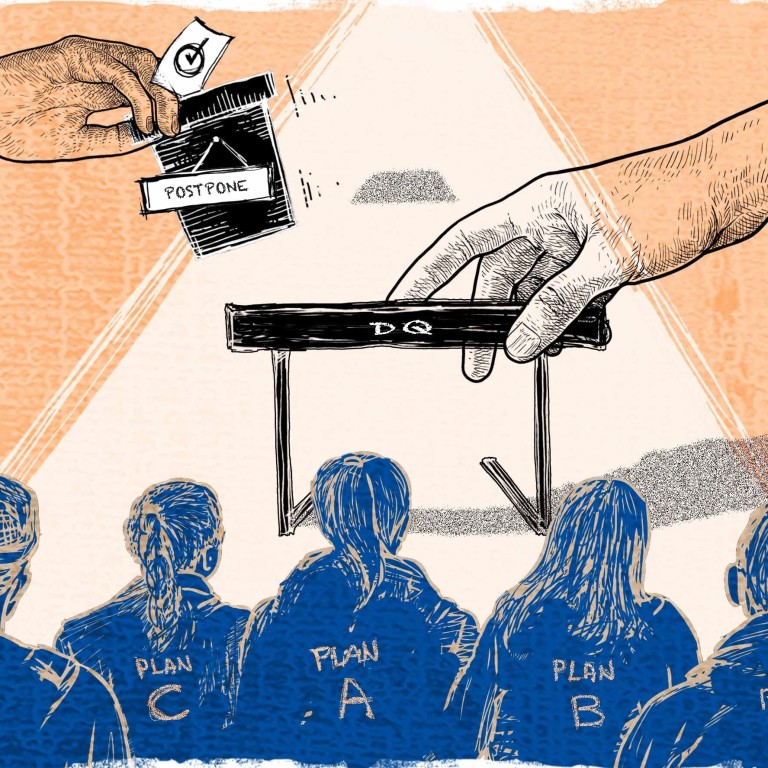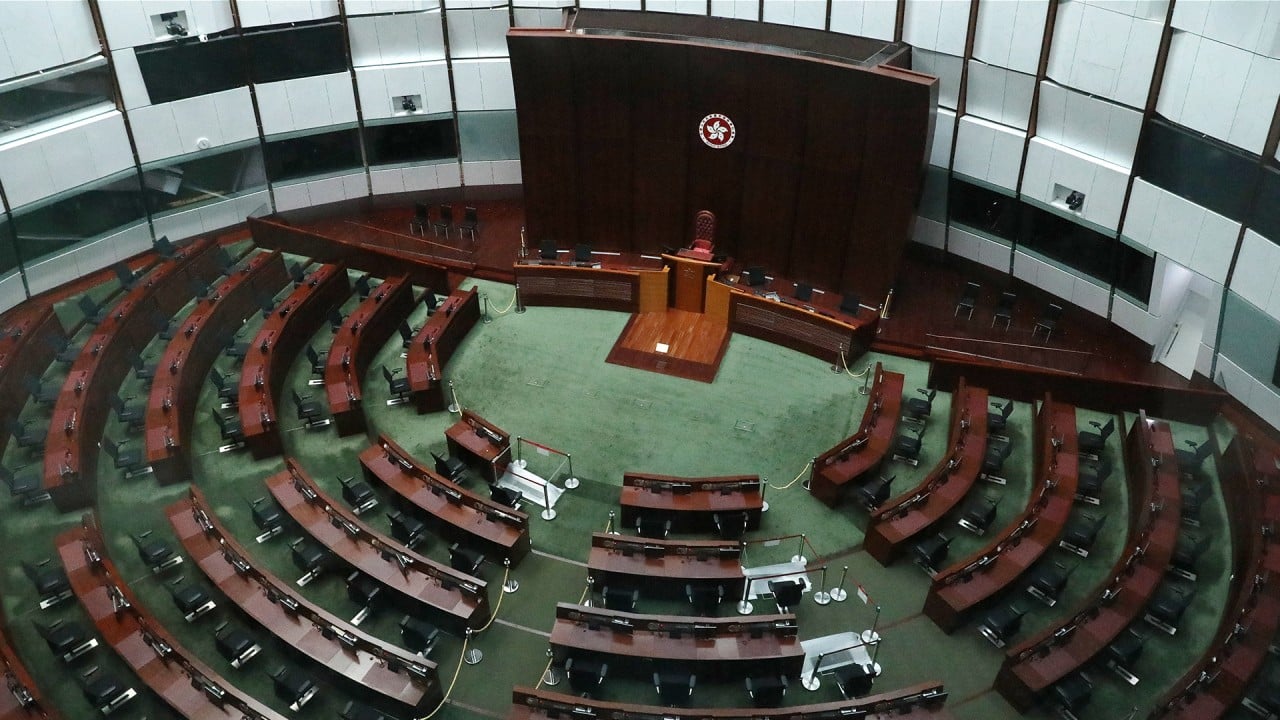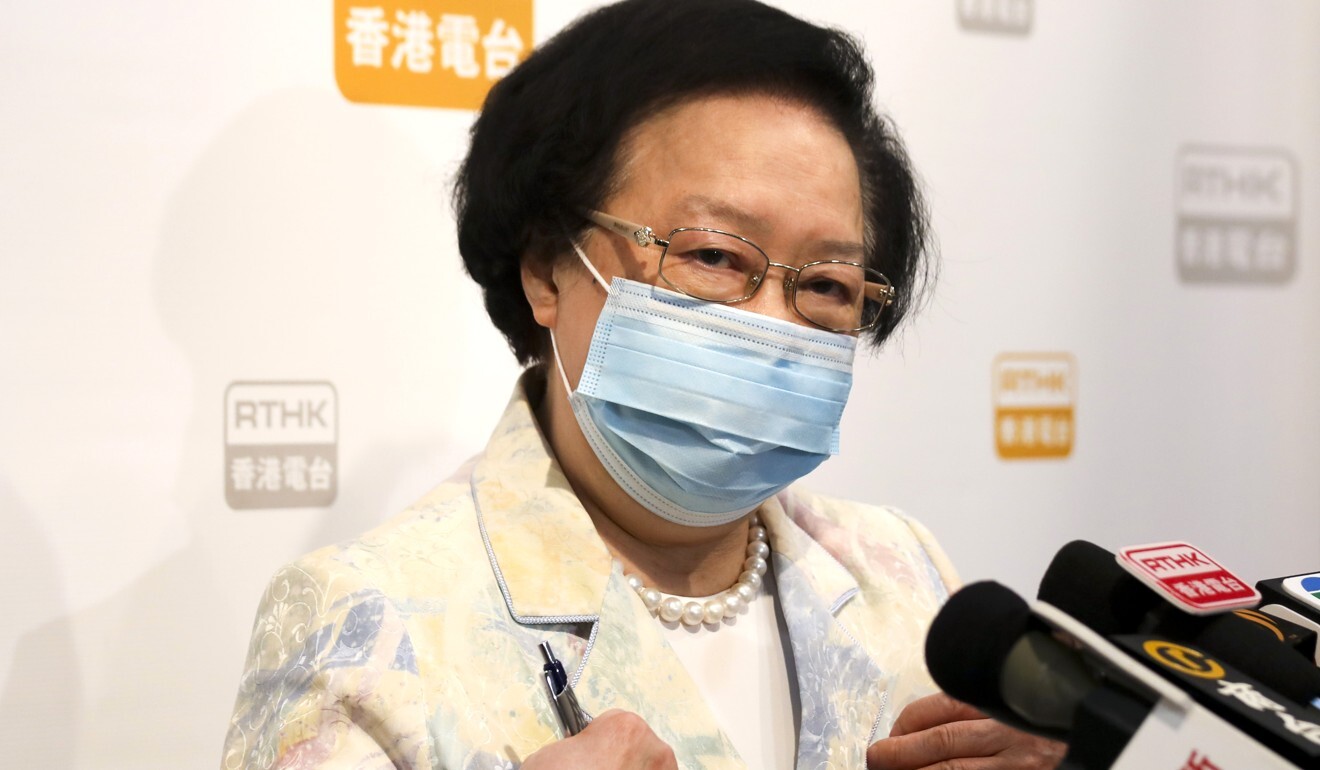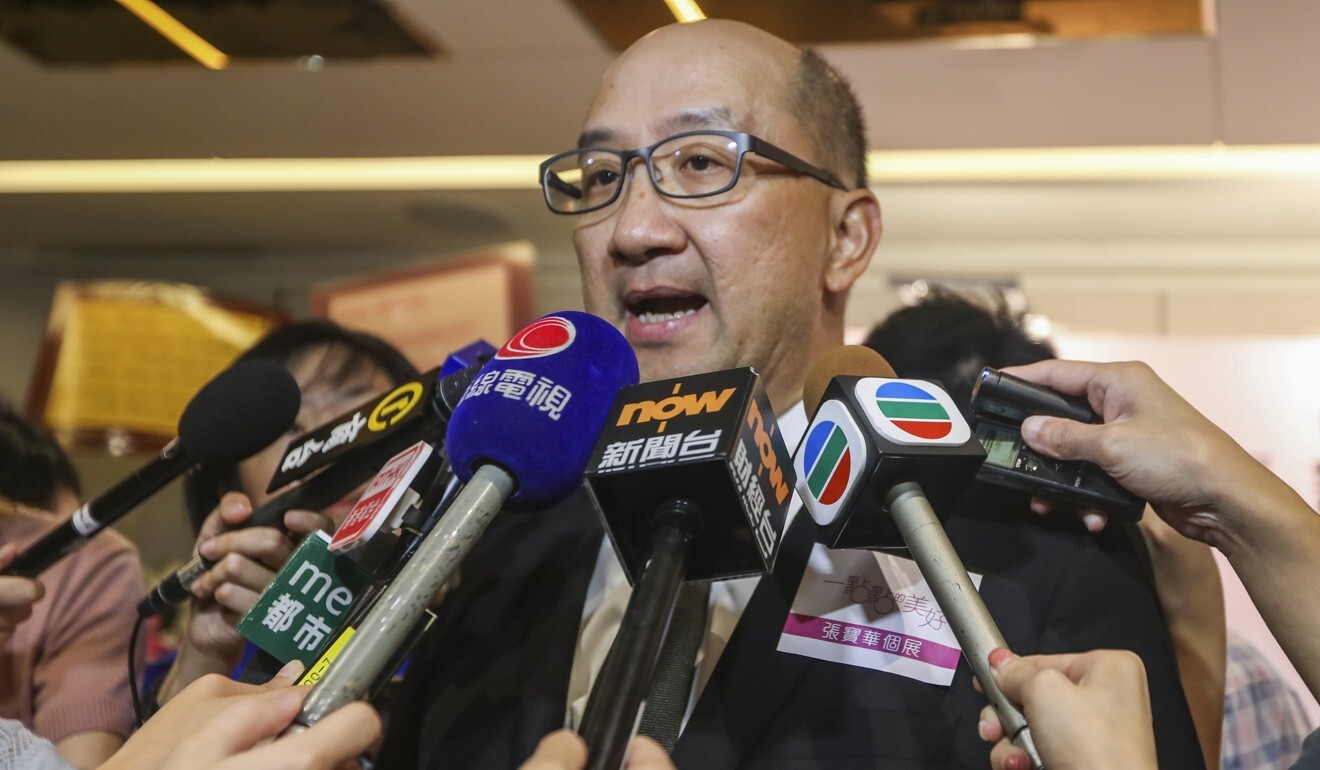
Hong Kong elections: by delaying vote for one year, leader throws up raft of legal and political questions
- It remains unclear if opposition lawmakers already disqualified from running will be permitted or even want to take part in an extended term
- Basic Law expert Maria Tam casts doubt over whether a prolonged Legco can survive legal challenges
The delay also scrambles the political landscape for the opposition, which must now decide whether to take part in a provisional term during which controversial legislation could be passed.

03:39
Hong Kong Legislative Council elections postponed by a year
Lam believed “the most pragmatic” way forward was to extend Legco’s current term, which expires on September 30, for one year.
Under the Legislative Council Ordinance, the chief executive must specify a date for holding general elections not earlier than 60 days and not later than 15 days before the new term of office.
The Legco president can convene emergency meetings after September 30, at the request of the chief executive, and such a session can be held before general elections of an unspecified date. Incumbent lawmakers will be deemed members of the legislature.
But Maria Tam Wai-chu, vice-chairwoman of the Basic Law Committee that advises Beijing on Hong Kong’s mini-constitution, said such a move would be subject to legal challenge as some might question whether such meetings could truly be deemed to be of an emergency nature.

The standing committee is scheduled to meet from August 8 to August 11, and its agenda does not include any items relating to Hong Kong.
Tam Yiu-chung, Hong Kong’s sole representative on the standing committee, said he did not rule out the possibility of an extra meeting to discuss the legal lacuna arising from the postponement of the elections.
Among the key questions to be resolved was the status of four incumbent lawmakers whose candidacies have been invalidated – the Civic Party’s Alvin Yeung Ngok-kiu, Dennis Kwok and Kwok Ka-ki, along with accountancy sector lawmaker Kenneth Leung.
Election officials had cited the city’s new national security law and pan-democrats’ previous calls for foreign governments to sanction Beijing and Hong Kong as key reasons for the disqualification.
It is unclear whether those incumbents could remain in office for the extended term.
Lam said further study was needed on the issue.
During an extended term of Legco, the government may bulldoze unpopular proposals and bills
“But I can say the government will work in accordance with the law … Legal grounds are needed to remove anyone from the post of lawmaker. It is not something as arbitrary as one cannot pass here so one gets to be ousted there,” Lam said.
The Civic Party criticised the postponement as “blatant manipulation”.
The government was “slapping its own face … to achieve its goal with any means”, a party statement said. It noted many countries had rolled out measures to ensure elections went ahead as scheduled during the pandemic.
Democratic Party lawmaker Lam Cheuk-ting said his party would have to listen to the views of its members and its allies in Legco before deciding whether to remain in the legislature for the extended term.
Extending Legco term would see ‘caretaker legislature’ in charge
“During an extended term of Legco, the government may bulldoze unpopular proposals and bills such as the legislation to enact Article 23 of the Basic Law to safeguard national security or amend the election laws to favour the pro-government camp.”
He said the risks were higher than in 1996 when Legco also underwent dramatic upheaval. Beijing formed a provisional legislature after derailing arrangements under which members of the body’s final term before the 1997 handover were to become the first lawmakers of the special administrative region. Pan-democrat lawmakers refused to join the provisional legislature on the grounds it was not democratically elected.
“The political risks arising from staying in Legco during an extended term could be bigger than joining the provisional Legco in 1996, ” he said.

But Raymond Tam Chi-yuen, a Hong Kong deputy to the NPC and former secretary for constitutional and mainland affairs, believed the standing committee would make a timely decision on how to resolve the outstanding legal uncertainties. Tam agreed postponing due to the pandemic was the right decision, a view supported by the Hong Kong General Chamber of Commerce.
Although the delay was not an “ideal situation”, the chamber believed “that given the current spike in coronavirus cases, safeguarding public health needs to take priority,” said its chief executive George Leung Siu-kay.
Academics raised questions over the effect of the delay on the safeguarding of the rights of the electorate and the potential damage to the reputation of the administration.
Eliza Lee Wing-yee, a professor with the department of politics and public administration at the University of Hong Kong, said the leadership should only take such a step if there was convincing scientific evidence about risks to public health due to the pandemic and after consulting stakeholders, including opposition parties.
Why didn’t the government postpone it for two months first?
[A postponement] would seriously endanger people’s democratic rights,” Lee said. “Leaders will face criticisms for using the public health crisis to extend their mandate”.
She cited a recent study conducted by the European Parliamentary Research Service that highlighted the risks created by putting off elections, including denying citizens the chance to bring about a change in policy direction, especially in nations witnessing a backslide in democracy.
Lee called the one-year postponement “excessive”.
“Why didn’t the government postpone it for two months first?” she said. “Parties can continue with the campaign while the authorities still have time to review the epidemic situation.”
Ma Ngok, a political scientist at Chinese University, said most Hongkongers believed the postponement was a political manoeuvre that had little to do with the health crisis.
Joshua Wong sees dual purpose in allegations barring him from Hong Kong polls
“Beijing and the pro-establishment camp are not sure if they can secure a majority in Legco if the elections were held [now], especially when hundreds of thousands of their supporters cannot return to the city to vote,” Ma said, referring to Hongkongers living overseas and across the border in mainland China.
He believed the government’s mass disqualification was aimed at sending a chill over the opposition and dividing its members.
“Different parties may have to guess if they are allowed to run or not, and what stance they should take to refrain from being disqualified in the coming year,” Ma said.
Concerning a possible provisional Legco, Ma believed the public would still expect some opposition lawmakers to serve and resist if controversial government proposals were put forward.



